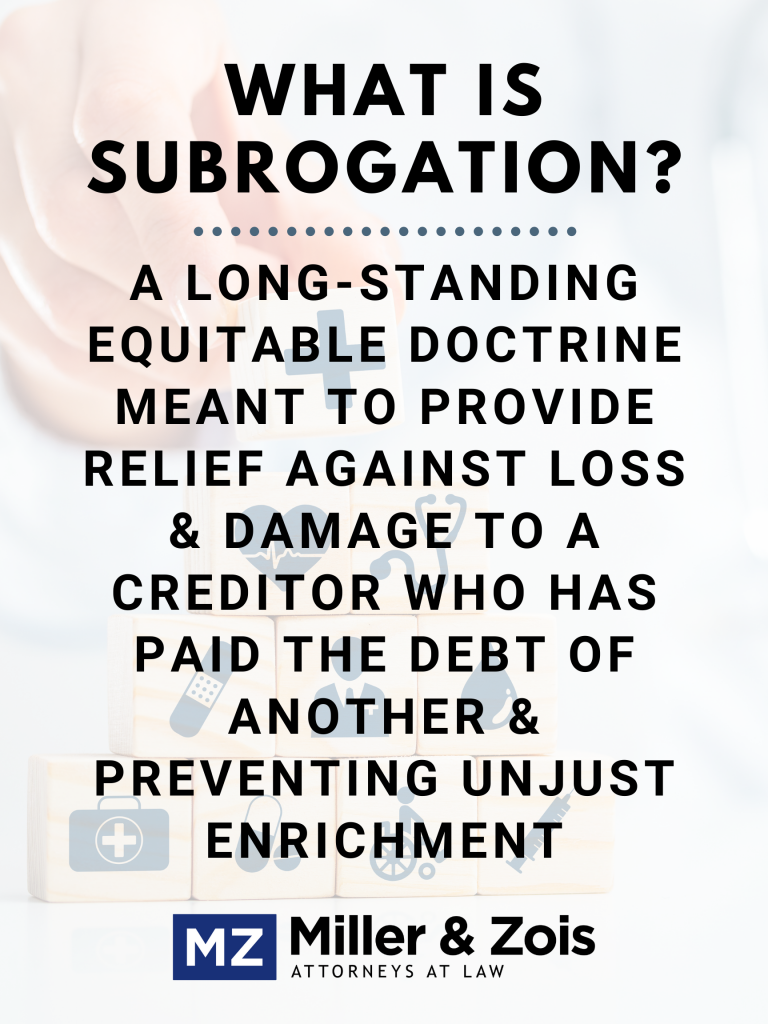 Our plaintiffs’ personal injury lawyers frequently receive calls from defendants who have been involved in auto accidents who do not understand why they are being sued by an insurance company because of an auto accident they had that was not their fault.
Our plaintiffs’ personal injury lawyers frequently receive calls from defendants who have been involved in auto accidents who do not understand why they are being sued by an insurance company because of an auto accident they had that was not their fault.
Most people involved in an auto accident in Maryland do not realize that if they do not have auto insurance and the accident is their fault, the other party’s insurance company can sue them for the money it paid out in property damage. Many of these callers are surprised when, years later, they receive suit papers for an auto or truck accident in which no one sustained a personal injury, yet they are being sued for thousands of dollars, either for property damage or for medical bills paid by an insurance company. The insurance company is exercising its right to subrogation, which literally means the insurance company is substituting itself for the actual party involved in the auto accident and collecting the money for the damage done to that individual’s property (for which they have already paid under their insurance contract with that person).
How is this possible? The insurance company is exercising its right to subrogation, which literally means the insurance company is substituting itself for the actual party involved in the auto accident and collecting the money for the damage done to that individual’s property (for which they have already paid under their insurance contract with that person).
- What to do when you are being sued by an insurance company in a subrogation claim?
What is Subrogation?
Subrogation is a long-standing equitable doctrine in Maryland and throughout the country. The purpose of subrogation is to provide relief against loss and damage to a creditor who has paid the debt of another and preventing unjust enrichment. What does that mean? It means if someone else pays your bill and you are compensated by the wrongdoer for that bill, the person who paid that bill for you — usually an insurance company — has to be paid back.
The most common example we see is health insurance. When you get in a car accident, your health insurer often pays your bills. The at-fault driver’s insurance company also pays your bills. Maryland law typically requires you to compensate the insurance company for the money that they spent. (Our law firm can often negotiate substantial reductions in that amount.)
How is that fair? Why are you even paying insurance premiums if you have to pay back the health insurer after they make payment? These are valid questions. The insurance companies are stealing money from accident victims who have more of a right to that money than the insurance companies. Why does it matter that there was an accident involved? That is what you are paying premiums for in the first place, right? Unfortunately, Maryland law does not see it that way. The law sees it from a freedom of contract perspective. These insurance companies all have contractual language obligating you to pay back the money they pay you if you collect that money from another source.
What Is the Solution to This Problem?
Our lawyers deal with this issue all the time. We have developed a lot of tactics to reduce and even eliminate health insurance liens. What if your case is too small for a lawyer? You should contact the insurance company’s lawyer and try to negotiate a settlement on your own without a lawyer. The insurance company’s lawyer is sometimes authorized to accept pennies on the dollar to settle these cases in an effort to save the insurance company the time and effort of trying to collect a judgment it obtains.
If you want answers, reach out to us and we will try to help you if we can.
- More on subrogation law in Maryland regarding health insurance liens and ERISA claims
- Good news: a lot can be done to reduce medical liens
 Maryland Injury Law Center
Maryland Injury Law Center


